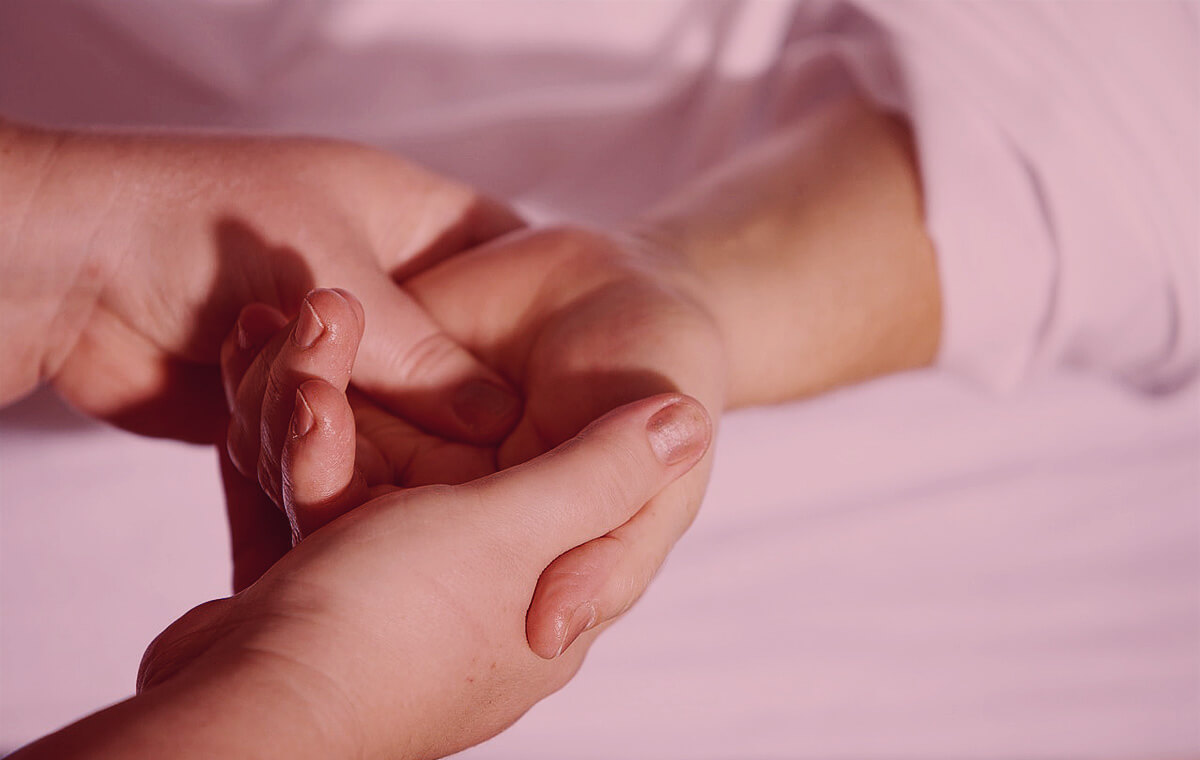Common Relationship and Sexual Styles
Read through the common styles and try to establish which one could be yours. This decision should be made as a couple. You are looking for similarities is terms of the amount of emotional intimacy and the value which you put on sex and eroticism. Obviously, every couple is different and can be a mix of different styles. But think about your approach to the relationship, your needs in terms of emotional connection and sexual satisfaction. When you will read through the types please answer the questions below together to make sure you have made the right choice.

The Complementary Couple Style
This style is the most common. It is a style where people display moderate intimacy and a firm sense of autonomy in the relationship. Those couples usually work through their issues in a good manner. Both partners can feel a sense of belonging and respect while facing difficulties. Both partners have well-established roles in the relationship and support each other in their areas of expertise. For example one of the partners may be the one who keeps a lively atmosphere when the other will be better at organising the house life. They both ‘fill each other’s gaps’. However, the issue which they can face sexually can be a sense of routine. As much as this type is good at being life partners they can also lack intimacy, passion, and a sense of specialness. The sex after some time can become mechanic, less fun, and playful. Even though the atmosphere in the relationship is reaffirming, positive, and secure the sex life can be more focused on the intercourse itself rather than satisfaction. Which can contribute to issues like erectile dysfunction.
Ideally, both partners should be comfortable with initiating the intercourse and declining the offer. But also offering alternatives if they chose not to have intercourse. Increasing intimacy and the sense of the specialness of the relationship is very important for this style.
The Conflict-Minimising Couple Style
This style is the most stable and usually organised along traditional gender roles. Where man is a primary resource provider and woman is a caregiver and works around the house. Partners usually avoid emotional exchanges especially involving anger. The intimacy is limited and the relationship focuses on the family as a whole, values, and religion. The emotional and practical rules of the relationship are straightforward and respected by both partners. In this type of couple stability and family is veiled more than intimacy and coupleness. Security and predictability are what run the relationship.
Initiating sex and establishing its’ frequency is a man’s role. Any sexual issues are minimised. Sexual scenarios focus on intercourse and it is usually one-way foreplay rather than mutual pleasuring. It is expected that a woman will function as a man so that she will have a single orgasm without additional stimulation. This is usually not the case, but it also is minimised. Sex is a males domain when affection is females’.
There are several possible sexual traps that can affect such a relationship. Sole focus on intercourse can make a man vulnerable to erectile dysfunction. Because partners are not sexual friends, which in turn can lead to a decrease or absence in sexual contact. If the man can start experiencing performance anxiety it may lead to a decrease in performance. Without additional sexual scripts not involving intercourse, the couple is left with decreased satisfaction in their sex life.
Conflict-minimising couples miss the opportunity to deepen their intimacy through resolving conflicts and getting to know their differences. They also underestimate the impact of sexuality and pleasure on the relationship. If you have this type of marital pattern be sure that successful erections and intercourses are only in 15-20% contributing to sexual and relationship satisfaction.
The Best Friend Couple Style
This style is characterised by the highest degree of intimacy, acceptance, and sharing; equitable distribution of roles and responsibilities; and commitment to a close, vital marriage. Although the cultural ideal, this marital style runs the risk of leading to disappointment and alienation when emotional and sexual expectations are not met or there are irresolvable conflicts.
When both individuals choose this relationship style and devote the time and psychological energy to make it successful, they can be a very impressive couple. However, best friend couples have a high rate divorce rate, based on disappointment and resentment towards the partner and relationship.
For the best friend couple sex energises the relationship and makes it special. They enjoy touching inside and outside the bedroom. Intimacy, pleasure, and eroticism are valued by both people. Their sexual style is flexible and responsive to the feelings and performances of both partners.
The biggest emotional trap is that they often sacrifice their autonomy and individuality for the sake of their relationship. When things do not work out they regress to hurt, blaming, and resentment. Disappointment and disillusion rob a couple of vitality. These couples usually lack conflict resolution skills and become bitter over thwarted hopes and expectations.
The biggest sexual trap is inhibited sexual desire. Intimacy and couple time serve as bridges to sexual desire, but too much intimacy can stifle erotic feelings. Best friend couples are not assertive in dealing with sexual problems. They expect each should know what the other is thinking and what the other wants without having to ask or articulate. When there is sexual dysfunction, especially erectile dysfunction, love and communication are not enough. Warm feelings and conversation are needed but there is more to be done to overcome such problems. Taking personal responsibility and working as an intimate team is very important if this style is supposed to create a functional relationship.
The Emotionally Expressive Couple Style
The emotionally expressive couple’s style is the most volatile and unstable but also the most engaging, fun, and erotic. They have the highest intensity of feelings, both loving and angry. When this style works well, it can be a framework for a vibrant and exciting relationship. Those couples value sexuality that is spontaneous, adventurous, playful, and energising.
Unfortunately, it is also the most unstable couple style and has the highest divorce rate. The conflicts are frequent and intense. Emotionally expressive couples can deal with disappointment, anger, and conflict, but if they cross the line into personal put-downs, contempt, and disrespect, this breaks the bond.
There is a number of potential sexual issues, including using sex to make up after an abusive fight. It is poisonous for physical and emotional fights to serve as foreplay. Another problem is that a gradual, step-by-step process of dealing with sexual problems is challenging for them because they expect spontaneity. If the sexual problem is not resolved quickly they may become bitter and blaming.
To achieve success this type of couple needs to respect personal and sexual boundaries, and approach issues as an intimate team.

Read and answer those questions individually. Write down your responses and share them with your partner. Together try to establish your couple style. Do not be ‘politically correct’ or try to second guess your partner. Be honest and explicit. Do not feel apologetic because of your responses. It is not the point to match your partner but to understand each other.
Questions:
- How much emotional intimacy do you want in your life and relationship?
- What are the most important emotions you want to share in your relationship?
- What is your preferred way to deal with differences and conflict?
- Which style do you think you have in your relationship?
- What are the strengths and vulnerabilities of the style you’ve chosen?
- How important is sex in your life? What role do you want it to play in our relationship?
- How much do you enjoy cuddling? How important is it to you?
- How do you distinguish affectionate touch from seductive touch?
- How much do you enjoy sensual touch? Do you prefer taking turns or simultaneously giving and receiving?
- What is the meaning and value of playful touch? How comfortable are you with affectionate or silly nicknames for your genitals and sexual activities?
- How much do you enjoy erotic scenarios and techniques? Do you enjoy erotic sex as a route to orgasm or only as a pleasuring experience?
- Do you prefer single or multiple stimulations? Do you enjoy external stimuli or not?
- What is your preferred intercourse position? Man on top, woman on top, rear entry, side to side? What type of thrusting do you prefer? In and out? Circular? Deep inside? Shallow? Fast or slow?
- How much do you value after play as a part of your lovemaking style?
Divide your answers into three categories:
- Areas you agree on
- Areas you can reach agreement on (Identify differences which you can accept or even enjoy)
- Differences to accept or adapt to (Differences in which partners are complete opposites and are not willing to incorporate. Differences should be acknowledged and accepted but it does not mean that all of them can be incorporated and satisfied. The couple should work around them and make compromises to reach a successful relationship and sex life.)
Have an honest chat about your patterns of interactions, resolving conflicts, making amends, and displays of affection.
To find out more and enhance the quality of connection in your relationship try sexual therapy online or sex therapy in Sydney. If you do not have sexual problems general couples therapy and marriage counselling are also viable options.
Ask a sexologist online for guidance and an appointment now.

